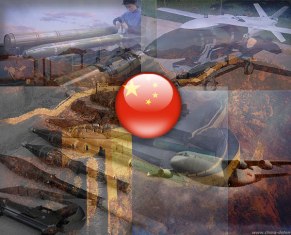Vietnam said on Friday that it would conduct live-fire naval exercises off its coast next week, a step that escalated a long-running dispute with China over territory in the South China Sea that both nations claim.
The naval manuevers follow an exchange of sharp statements on Thursday. Vietnam claimed that China had harassed a seismic survey boat, damaging a research cable trailing behind it; China demanded that Vietnam halt all oil-exploration activities in the disputed area.
In an announcement on its website, Vietnam’s state-run Northern Maritime Safety Corporation said that nine hours of naval exercises would be held on Monday off the country’s central coast, and warned other vessels to avoid the area. It was the first time that the government has publicized a live-ammunition drill, the Associated Press reported.
The diplomatic flareup between China and Vietnam was the most serious confrontation this year in a territorial dispute that also involves the Philippines, Malaysia and Taiwan. The five countries have competing claims to parts of the South China Sea bed, which may hold valuable oil and mineral deposits. Arguments over the territory have continued for years, and the nations signed a 2002 accord that committed them to show restraint in disputed waters.
The issue heated up again last year because of a United Nations treaty that required all nations that maintain claims to continental-shelf seabed to file the claims formally by the end of 2009. a The documents that Vietnam and China filed to comply with the treaty asserted their territorial claims in the South China Sea more aggressively than they had before. China has seized scores of Vietnamese fishing boats in recent years, and Vietnam has responded with naval activities like the seismic vessel involved in this week’s incident.
China blames Vietnam for that incident, saying that armed Vietnamese boats were illegally chasing Chinese fishing boats out of the area, and that a Chinese fishing net accidentally snagged the research cable. Vietnam, however, called the damage to the research cable premeditated, and said it was the second such incident in recent weeks.
Both incidents, Vientam said, took place within the exclusive economic zone, extending 200 nautical miles from the Vietnam coast, that is reserved to Hanoi under international law. China claims the same kind of zone based on its own coastline, and their claims overlap, especially in areas surrounding small islands in the sea whose ownership is disputed.
Both countries are seeking to establish a demonstrated presence in the area, a key requirement for pressing a territorial claim should negotiations over the maritime boundaries ever become serious.
One reason the dispute has flared in recent years is that the 2002 accord has proven to be toothless, Michael Vatikiotis, a security expert at the Centre for Humanitarian Dialogue in Singapore, said in a telephone interview.
China’s neighbors have grown increasingly uncomfortable as the People’s Liberation Army Navy has opened a submarine base on Hainan island, on the edge of the sea, and as China’s growing navy has ranged across the area.
“It would appear that incidents involving China and other claimants have increased,” Mark Valencia a Hawaii maritime analyst and leading expert on the dispute, said in an e-mail interview. “But why now — that’s the $64,000 question.”
With regard to China, he said, the answer is “perhaps , in part, because they can.”









